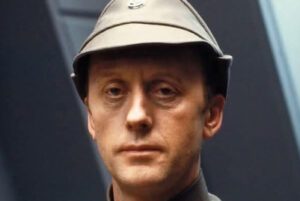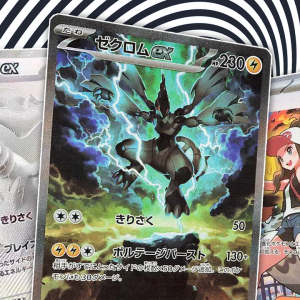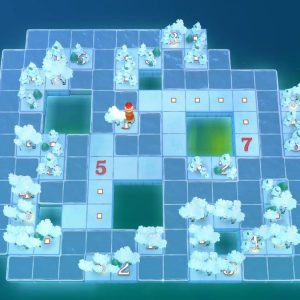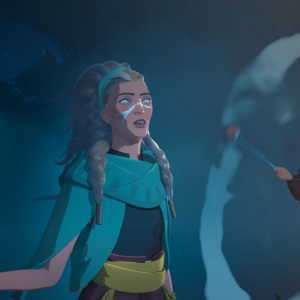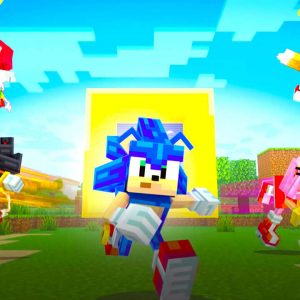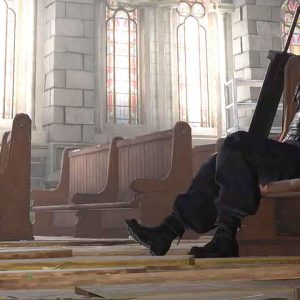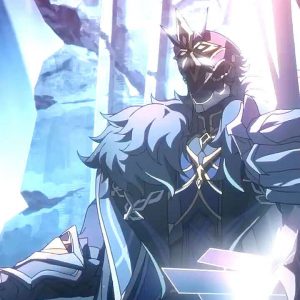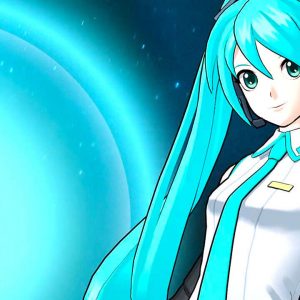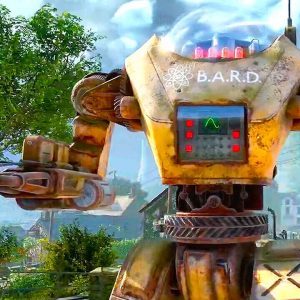We live in a time of exceptional video game quality and abundance: There’s always too much to play (especially as I type this in September of 2023). So it’s all the more surprising that The Making of Karateka, which focuses on a game from nearly 40 years ago, totally captivated me. Part classic game collection and part documentary, wrapped in an interactive historical experience, The Making of Karateka follows the true story of a teenager’s path to publishing a hit video game in 1985. And the story is a good one. While Karateka is not a particularly fun 2D-fighting game to play, exploring its story in this weird and wonderful package is very much so.
What makes this story extra special is twofold: First, the surviving documentation of college student Jordan Mechner (who went on to make the original Prince of Persia) creating a video game for the Apple II, Commodore 64, and other early PCs with the help of his immediate family, especially his father, is extensive and exquisitely preserved here. Jordan’s personal journals and goofy development sketches, playable code of multiple game iterations, typewritten paper correspondence between him and his publisher, and even 3D scans of 5.25-inch floppy discs with their original Sharpie-on-sticker labels – the amount of detail gets even more exacting from there.
Second, Digital Eclipse’s interactive timeline presentation of these documents, video segments, and of course, the games themselves, are irresistible to explore. (This playable history platform debuted in Atari 50 last year, which scored a 9 on IGN.) The experience is not passive, like a film documentary: There are little tools to compare audio and visual tweaks between versions, a timeline to check off your progress, and an entire, playable version of Karateka with developer commentary built right in. The commentary, by Digital Eclipse developer Mike Mika, is a documentary unto itself. Seemingly Karateka’s biggest fan, Mika’s explanation of why he loves this game goes well beyond the screen and deep into the fragile balance of programming tricks that made smooth animation possible on a computer better equipped for primitive arcade ports. (One of these ports, an Asteroids knockoff, was in fact created by a teenage Jordan Mechner.)
This remake is actually a much more fun version of Karateka, which still feels clunky and inaccessible in its original forms (of which there are five included in this collection, including ports and demos). Digital Eclipse’s Karateka is definitely worth playing through – but only after watching the documentary (and giving yourself some extra lives) for some very important context. Without spoiling anything, the ending “twist” is both funny and shocking.
The remade Karateka is the best game of the collection because it includes several enemies and instances that were conceived of and discussed in the documentary, but were not technically possible at the time. The significance of the remake’s small expansions, like a puzzle with a larger cat, is heightened by listening to the developers talk about each one with lavish enthusiasm – it’s infectious. Similarly, the inclusion of several ‘80s PC platform conversions, which we learn from the documentary were extremely difficult to create, seem janky and not fun to play at first blush. But after discovering how each system was bent to these young game devs’ will to make Karateka work, it was at least fun to spot the differences, if not actually fun to play through the whole original games.
Even if it’s not fun to play through these many iterations of Karateka, however, you can instead just watch them: A perfect playthrough is included, and you can assume control of it any time (and several playthroughs you can watch have commentary tracks of their own).
The documentary content itself is admittedly simplistic: People involved in the original Karateka, fans, and other commentators are shot against an austere studio backdrop or in their lived-in homes – it doesn’t scream high budget. However, the jankiness melts away with the documentary’s most perfect moments: Those between Jordan Mechner and his father, Francis, who sits at a piano and recalls, in precise detail, breakthrough moments in his son’s early (again, highschool and college!) development career. These scenes are breathtakingly sweet. Kratos has nothing on video game’s best dad, Francis Mechner, who supported his son unconditionally through pursuing his passions.
In fact, the elder Mechner not only suggested the rotoscoping technique that led to Karateka’s cutting-edge animation, but he put on his wife’s gi and clambered onto a car to help Jordan get frames. Francis composed Karateka’s music, and then worked with his son on getting the buzzes and beeps of the Apple II to sound like music – no small feat. When Jordan demanded quarters (which, in 1980, had the same buying power as a dollar today) for the arcade, he doled them out like his endless patience, excited encouragement, and total engagement with his son’s interests. So much so that Jordan at one point asks why his father was so supportive of such a complete distraction from school. Why? His father tells him it’s important to encourage a child’s interests, and that it usually turns out okay. That is some powerful parenting.
